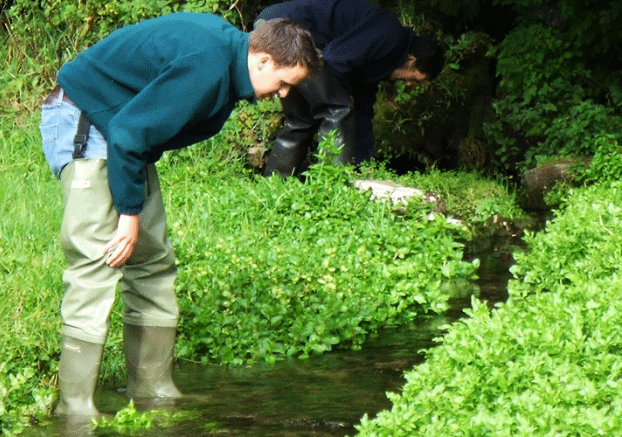Climate Change?… be the change you want to see!
December 2021
If you think that COP26 was not all that it should have been, and that more needs to be done to combat climate change, you might consider Gandhi's great advice: “Be the change you want to see.” Or reflect on Michael Jackson's similar theme: “I'm starting with the man in the mirror, I'm asking him to change his ways...”
It is confusing for all of us to know how to do this. We certainly need the leadership and clout of world governments. But when they fall short, should we give in and do the same?

What can I do?
There are many ways of going green, as an individual, as a family, as a community. We would like to suggest that one of the best things you could do is to support a local initiative which directly aims to deal with climate change.
There are two main positive ways of dealing with climate change: climate change mitigation and climate change adaptation.
- Mitigation involves trying to reduce carbon/ methane emissions, to curb the greenhouse effect which is rapidly warming our planet.
- Adaptation accepts that there are already effects, and that there will be growing effects as a result of climate change; that we cannot carry on business as usual; and that we have to adapt. You have seen the news, you know what they are: extreme weather, drought (in the worst case, fires), and flood. You also know that, if we have not yet seen anything as bad as we see in other parts of the world, it is just a matter of time before severe drought or flood will impact upon us.
This is not easy to accept, and it can make us feel helpless. But doing things within our capability to make a difference, not only makes us feel better, but can also make a genuine local contribution to a global struggle.
West Wolds Slow the Flow
West Wolds Slow The Flow was initially set up to help us adapt to climate change (especially flooding) in our west Wolds villages. We aim to use nature-based solutions to reduce the worst impacts of flooding, whilst improving biodiversity and so also helping with the Biodiversity crisis - which is every bit as serious as the climate crisis. You can find out how Natural Flood Management (NFM) works by looking at our 'Introduction to NFM Techniques' on the WWSTF website.
Through discussion with our partners - Yorkshire Water, the Environment Agency, ERYC Flood Risk, East Yorkshire Rivers Trust, Yorkshire Wildlife Trust, HEYwoods, University of Hull, landowners and lots of local people and parish councils - we have also begun to realise something else. Some of these partners have been working with farmers and land owners across East Yorkshire and beyond. They are finding that better soil management is good for farming (reducing expensive dependency on irrigation and fertilisers), is good at reducing flooding and creating resilience to drought, and can lock up carbon in our soils - to the extent that farmers can potentially be paid for carbon capture and storage! Add to this the power of trees, hedges, meadows and wetlands to capture carbon and it becomes clear that land management is a key tool, not just for adapting to climate change, but also for mitigating it through carbon capture and storage.

How to get involved
So what does this mean to you? If you want to do something practical about climate change, you are already on the same page as us. WWSTF needs all the help it can get from local people. Have a think about your skills, your knowledge and your enthusiasm, and how they might help us here at WWSTF. Then get in touch for chat.
- As a local resident, you could share your knowledge of flooding or landownership. You could offer specialist skills (e.g. IT / website design, javascipt, engineering, hydrology, research, social media, marketing). Or something else we don't know about yet - you tell us!
- You could share photos or other evidence of flooding issues;
- As a farmer, you could help us with your expert knowledge of the land, how it drains and how it floods - and help us to find better solutions that work for both you and the community;
- As a landowner, you could work with us to develop and implement proposals which work with nature to reduce flood impacts and enhance the quality and resilience of your landholding;
- You may know of funding opportunities that are appropriate to our aims - you may even want to contribute!
- As an organisation or agency, you can work with us to prove that there is nothing more effective than true partnership;
- Schools and other education organisations - we would love to talk to you about how we can work with you;
- All ideas are welcome - what haven't we thought of yet?
Want to change the world? Start in your own back yard!